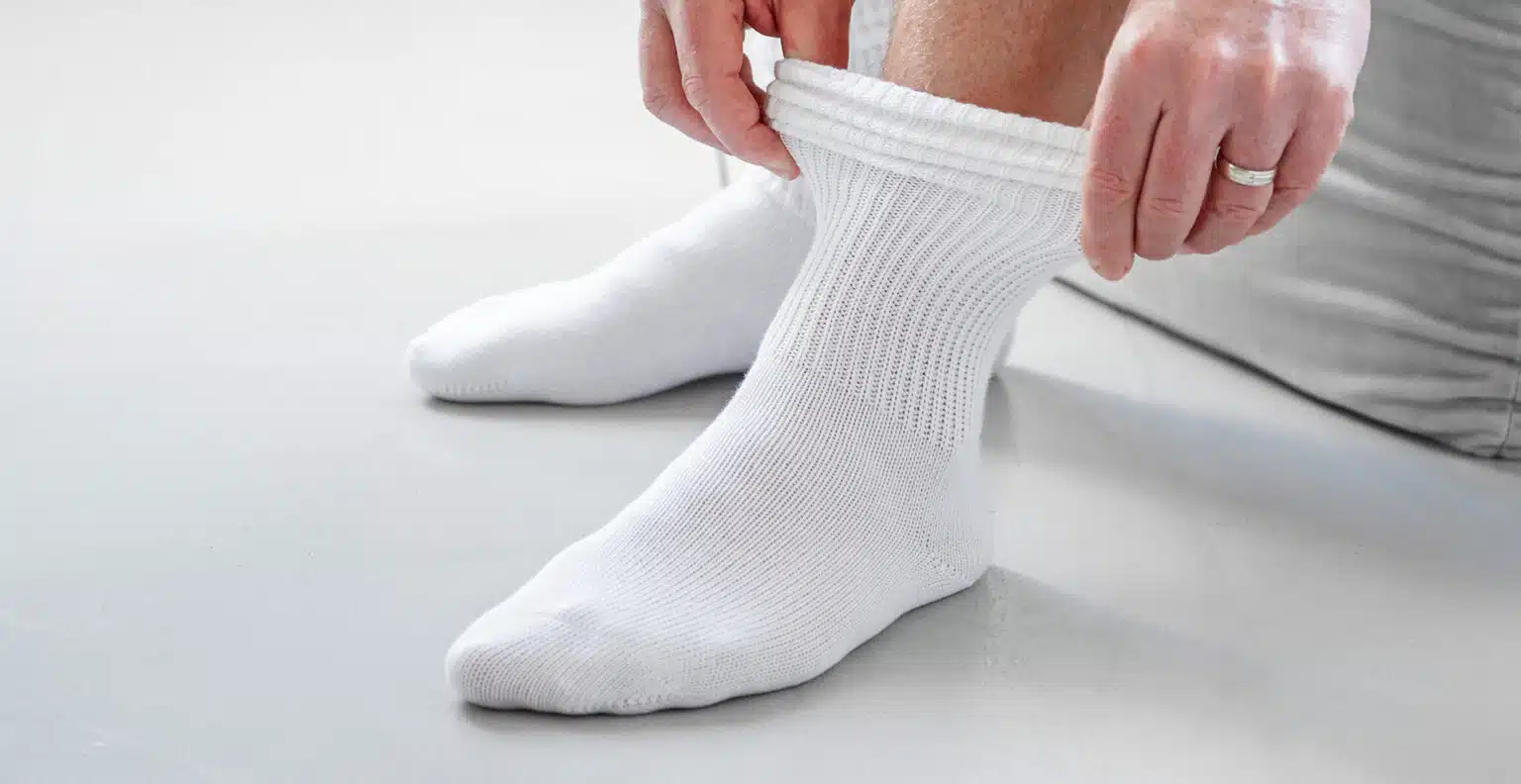If socks affect your sleep or unhealthy for you, use the techniques the expert suggests to maintain the feet warm instead.

The country’s northern region is currently experiencing a severe cold weather, with temperatures falling every day. It is therefore required to wear appropriate warm clothes, such as warmers, coats, and socks. However, a lot of people wind up wearing it to bed in order to stay warm and cosy at night. But is it a good habit to get into? We spoke with professionals who discussed the advantages and disadvantages of wearing socks to bed. Because chilly feet restrict the blood flow and severely reduce circulation, they stated that wearing socks during sleeping is quite natural and can even improve sleep.
However, Dr. R. R. Dutta, Head of internal medicine at Paras Hospitals in Gurugram, said, “This does not imply that not wearing it is harmful. Either approach is OK depending on how you feel. Dr. Aditya S. Chowti, Senior Consultant in Internal Medicine at Fortis Hospital, Cunningham Road, Bangalore, agreed, saying, “It’s a good idea to put on socks at night in winter to keep your feet warm and safe. It might be beneficial for women to lower their core temperature. It is also known to enhance circulation and treat cracked heels.
Benefits of wearing socks
The main benefit of putting on socks before bed is that they keep your body warm, particularly in the winter. Additionally, it prevents the skin on your feet from becoming dry. Socks assist lower core body temperature by enhancing blood flow to the feet and heat escape via the skin while you sleep. As a result, sleeping can happen more quickly. The blood circulation to your feet is improved when you wear it to bed. It heals heels that are cracked. Studies have shown that utilising it to warm your feet while you sleep in a chilly environment improves the quality of your sleep. It is linked to a quicker beginning of sleep, longer sleep duration, and fewer night awakenings.
What are the effects
But it’s not always a good idea, and in some cases, sleeping with your socks on might be harmful to your health. Your blood circulation may suffer if you are wearing tight socks. Furthermore, improper hygiene might have negative effects, according to Dr. Viswesvaran Balasubramanian, Consultant in Interventional Pulmonology and Sleep Medicine at Yashoda Hospitals in Hyderabad. Dr. Chowti agreed, saying that unclean socks or socks that are too tight can damage foot hygiene. If it is being worn are made of a synthetic material like nylon, there may be a higher risk of skin infection. Overusing it can cause the body temperature to rise, he explained.
Experts advised using soft, natural-fiber socks to avoid such foot infections. The finest materials are those composed of soft fibres, such as cashmere or merino wool. Similar advantages are provided by cotton material, but ensure they are made entirely of cotton. Make sure the socks you select are made for that purpose, advised Dr. Dutta.
Who should avoid wearing it?
Doctors insisted that some patients refrain from wearing socks to bed despite the practice’s obvious advantages. Dr. Balasubramanian advised against wearing for those who have cuts and scrapes or open wounds on their legs or circulatory issues such arterial or vein abnormalities in the lower limb. Dr. Dutta added that those who live in hot regions, as well as those who have fungal infections on their feet, should refrain from wearing it because their skin needs air and light to function properly.
It can take less time to relax and fall asleep if you warm up your feet before bed. Your sleep can then improve as a result of this. Ensure the socks you’re wearing are gentle, cosy, and not overly large. If you frequently experience chilly feet even when it’s warm or if you suffer from circulation issues that produce pain and icy feet, see a doctor.













